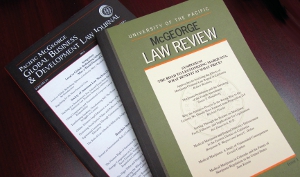International organizations and the holistic approach to water problems
Document Type
Article
Publication Date
1991
Abstract
Examines the extent to which international organizations have addressed the challenge of overcoming the narrowly conceived self-interest of States with regard to a particular resource: fresh water. The article concludes that while international organizations have generally recognized the necessity of treating water as a constantly moving part of a natural and apolitical system, much work needs to be done to convince States that it is indeed in their broader self-interest to view water as a part of a system governed by the laws of nature rather than as an aspect of territorial sovereignty. The scope of the article will be confined, for the most part, to the work of two international organizations that have devoted many years to the study of the law of international watercourses: the International Law Association and the International Law Commission. The article will examine the extent to which these organizations have taken a "holistic approach' in their work. Part I will review relevant aspects of the work of the International Law Association, focusing on the Helsinki Rules on the Uses of the Waters of International Rivers. Part II will highlight certain features of the ongoing work of the International Law Commission concerning the Law of the Non-Navigational Uses of International Watercourses. Part III will touch briefly upon relevant work of other international organizations. -from Author
Publication Title
Natural Resources Journal
ISSN
0028-0739
Volume
31
Issue
1
First Page
139
Last Page
165
Recommended Citation
Stephen C. McCaffrey,
International organizations and the holistic approach to water problems,
31
Nat. Resources J.
139
(1991).
Available at:
https://scholarlycommons.pacific.edu/facultyarticles/387
Creative Commons License

This work is licensed under a Creative Commons Attribution-NonCommercial-No Derivative Works 4.0 International License.



